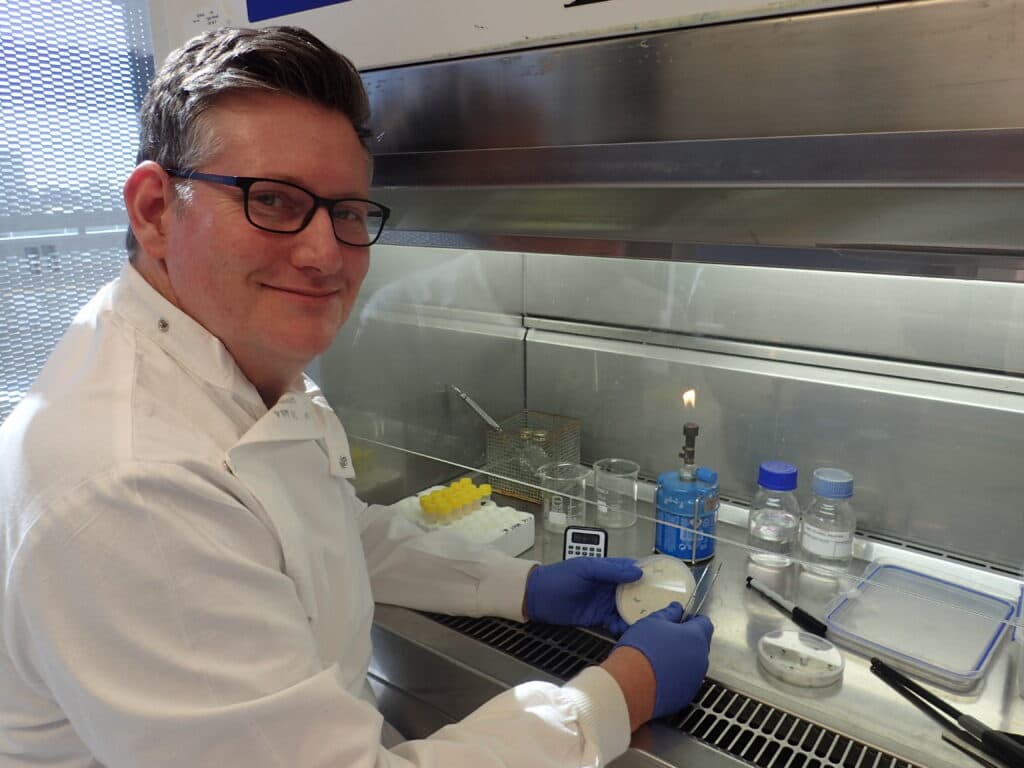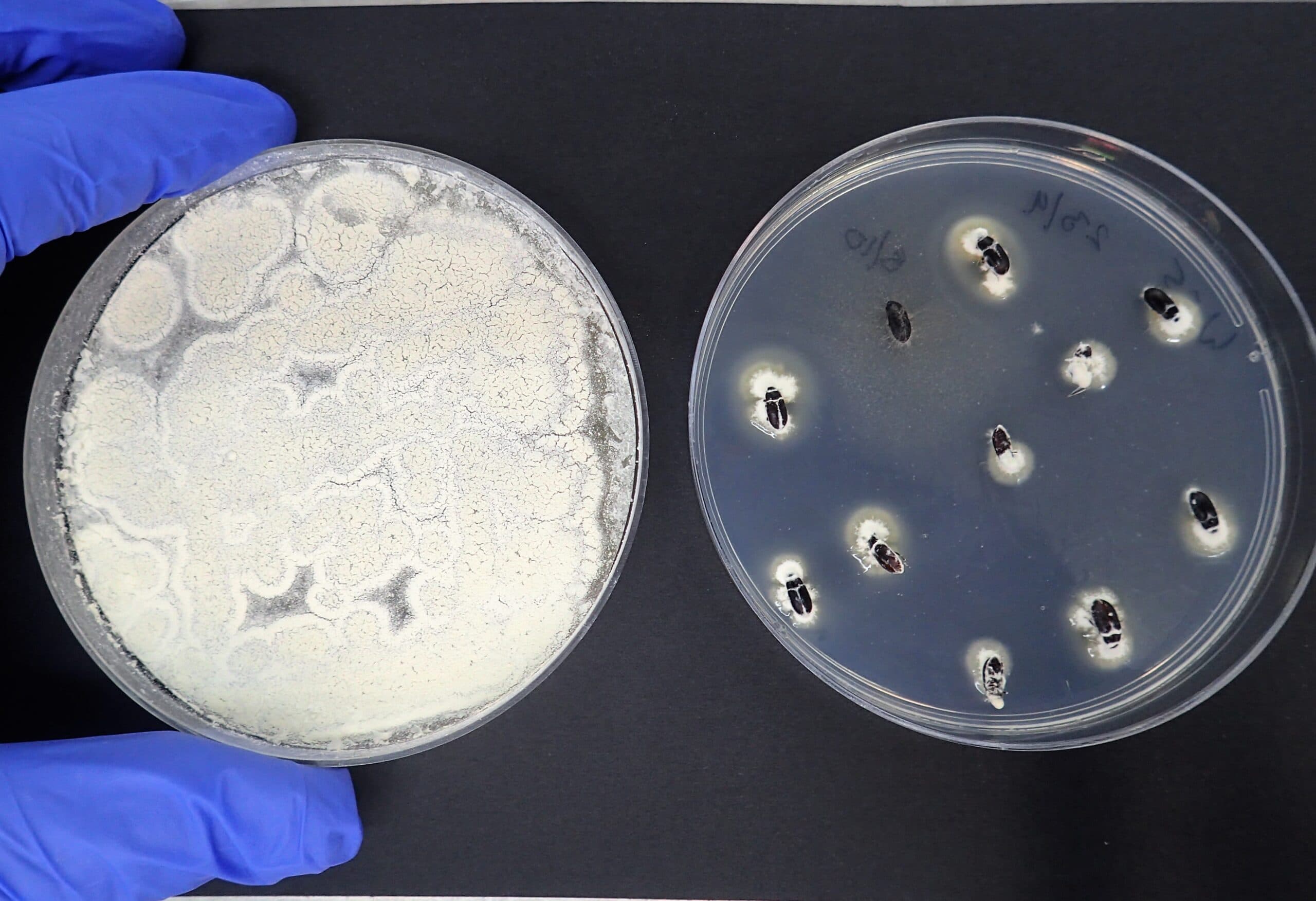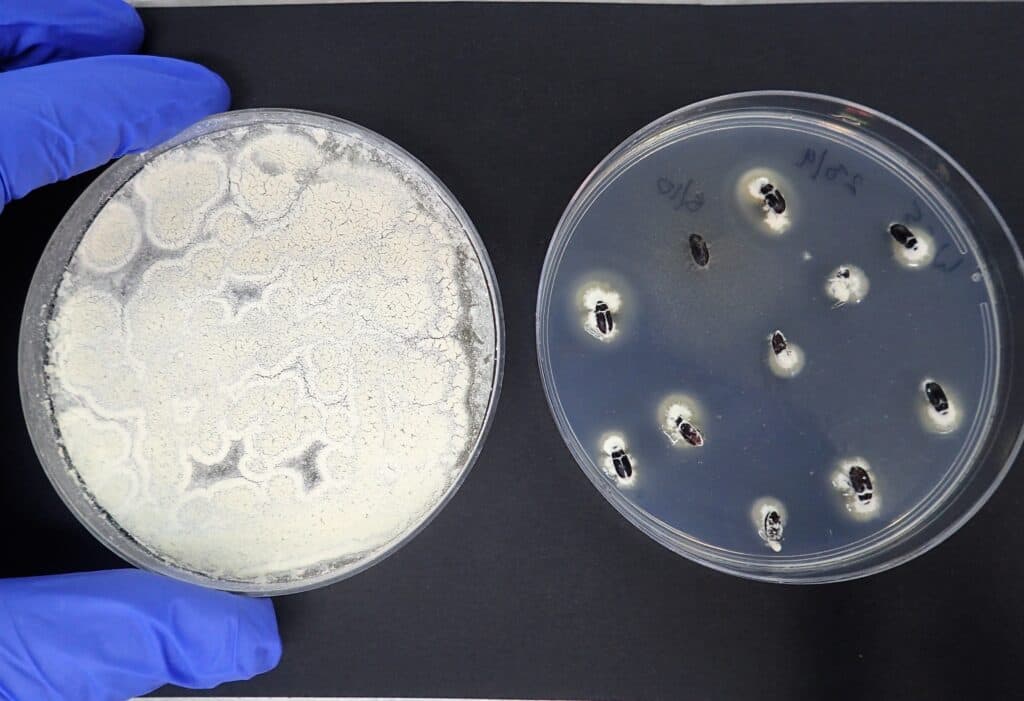“Pesticide resistance is developing,” said Steven Rice, Principal Technical Officer at Queensland Department of Agriculture and Fisheries (DAF). “A new option is needed and I think we have a viable one here.”
AgriFutures Australia and DAF have developed a fungal biocontrol agent for lesser mealworm control from the spores of the fungus Beauveria bassiana. The fungus-based formulation leaves no residue in chicken litter, and doesn’t contribute to insecticide resistance development. It’s also non-toxic to mammals and birds. Using a fungi that’s a natural pathogen of the lesser mealworm would ease reliance on conventional chemical pesticides, thereby providing a greener, longer-lasting solution to an enduring pest.
Steven has “a history of working with mycopesticides” with 23 years’ experience with DAF working on insect control in the laboratory and in the field. DAF is working in partnership with AgriFutures Australia, and is now seeking interested biotech companies to commercialise the product for market. The IP is split 80% AgriFutures Australia and 20% DAF.
The project was borne from a proposal submitted to AgriFutures Australia following an open call for research, said AgriFutures Australia’s Research Manager, Rachele Osmond. “An earlier project was funded that identified proof of concept before trials were held on farm to determine [the] effectiveness of the product in commercial situations. The project is jointly funded by AgriFutures Australia and DAF.”
Opportunity for international poultry sector, a boon for local market
It could be a much-needed alternative for the more than 700 chicken farms across the country, which produce the majority of the 46.9 kilograms of chicken meat consumed by each Australian annually.
“The international market is much larger,” said Steven. “We produce about a million tonnes of chicken meat annually and the largest markets are places like the USA and China, they produce up to 20 times that much.”
Rachele agrees: “Darkling beetles are an issue for poultry industries worldwide, so [there are] definitely international opportunities.”
In field trials at chicken-meat farms with litter re-use and replacement regimens – following laboratory work that tested against a range of temperatures, pH levels and various lesser mealworm life stages – Beauveria mycopesticides reduced lesser mealworm populations by around 70% compared to untreated sheds after only a few applications. In fact, one of the formulations performed better than the industry-standard pesticides tested in parallel and the other mycopesticide formulation equaled the effectiveness of the pesticides.
“The advantage of fungi is that it’s a natural product, it doesn’t have any chemical residues, and it’s not harmful to birds or to humans,” said Steven. “Essentially, it’s a clean and green option. Insecticides often work well for a while but when pesticide resistance develops their effectiveness reduces.”













